5 Ways to Celebrate Earth Day
As we countdown to Earth Day this Friday, April 22, we’re sharing five easy ways you can make a positive impact and help the environment and wildlife.
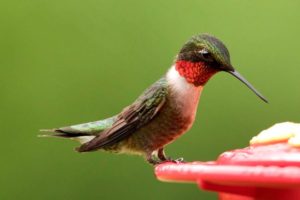 1. Turn the Lights Out
1. Turn the Lights Out
Each year, nearly two million birds make their way through Texas with the peak spring season happening now. You can help save migratory birds by dimming non-essential lighting and closing blinds in your homes and businesses between 11 p.m. to 6 a.m. Learn more about the Lights Out for Wildlife campaign.
Bonus: You can create bird-friendly spaces at home to give birds a place to fuel up and rest during their migration. Put out a bowl of water or food in a bowl or bird feeder.
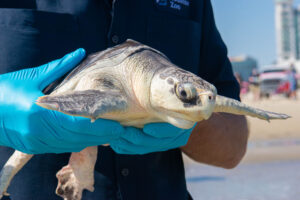 2. Skip the Single-Use Plastics
2. Skip the Single-Use Plastics
You can help save marine life, like sea turtles and sea lions, by reducing your single-use plastics and making the switch to reusable water bottles, bags, and straws. Sea turtles often mistake plastic items for food, ingesting it and causing them to get sick. You can help keep our oceans and waterways clear of plastic pollution and maintaining a clean space for marine life to live.
People are urged to call 1-866-TURTLE-5 if they see a sea turtle in distress or accidentally catch a sea turtle so that an expert can assess the turtle and provide care if needed.
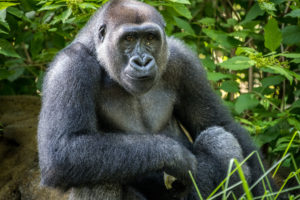 3. Recycle Your Cell Phones and Other Mobile Devices
3. Recycle Your Cell Phones and Other Mobile Devices
In 2021, the Houston Zoo recycled 1,137 cell phones, tablets, and other handheld electronics. That’s about 380 pounds of electronics, which is roughly the weight of a full grown silverback gorilla.
You can help save gorillas in the wild by recycling your devices on grounds at the Zoo. They can be dropped off at the recycling bin next to the Guest Services booth at the Zoo’s main entrance. Your cell phone and other electronics contain a small mineral called Coltan that is mined in gorilla habitats in Africa. These destructive mining practices threaten gorilla populations, so extending the life of metals that have already been extracted reduces the demand for newly mined metals and saves gorillas in the wild.
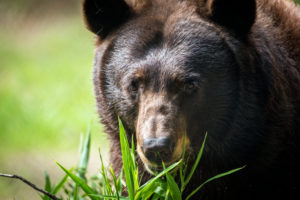 4. Make the Switch to Recycled Paper Content
4. Make the Switch to Recycled Paper Content
The Houston Zoo uses 100% recycled content toilet paper on grounds. In 2021, the Zoo recycled 360 pounds of discarded maps from 2020 and 2021. To help save bears, tigers, and other animals that rely on trees, you can choose to purchase paper with high amounts of recycled content, like certain brands of toilet paper and paper towels. The forested homes of animals around the world are harvested for regular toilet paper and paper towel products. Fun fact: A full grown black bear can scale a 100-foot tree in just 20 seconds.
Bonus: You can also reduce your paper usage by switching to paperless statements, opting out of junk mail, and saying no to printed receipts to help save wildlife.
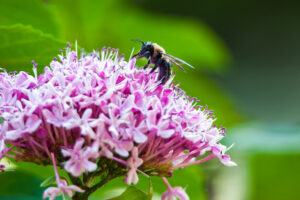 5. Plant Native Plants for Pollinators
5. Plant Native Plants for Pollinators
The Houston Zoo does a variety of things to help create wildlife-friendly spaces to support our local pollinators. We have a number of Texas native plant gardens around the Zoo that our horticulture team does an amazing job creating and maintaining.
We also have areas set up in various places to provide appropriate shelters and additional food sources for a variety of different bees and butterflies. These species are natures gardeners, known as pollinators. They carry pollen to other locations and help restore the environment.
You can help support wildlife and pollinators, too, by doing some small things in your own outdoor space! If you have a bigger space you can always start your own wildlife-friendly garden. If you have a smaller space, like a patio or balcony, you can have a few small potted plants to start. Every local plant helps support pollinators and other wildlife!
Native plants provide an environment for local wildlife to thrive while helping protect the Earth. Texas native plants can be:
- An important food source for plant-eating insects and wildlife
- Serve as host plants for butterflies and moths
- Require less water and maintenance
- Support more species than non-native plants
